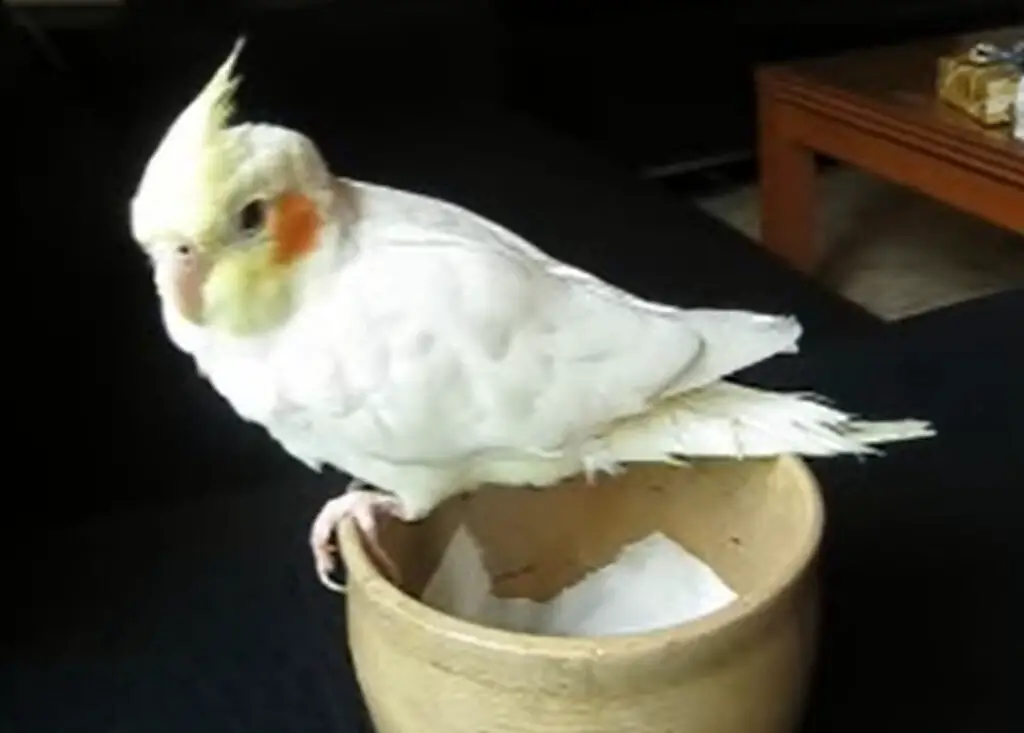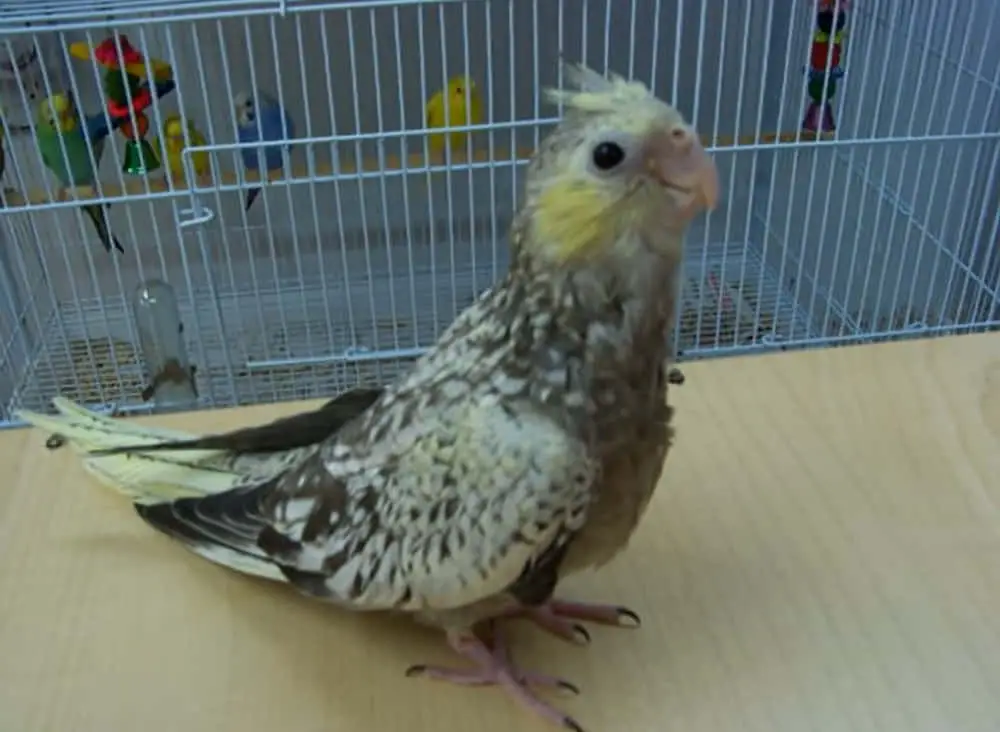Do cockatiels want a buddy? Cockatiels are extremely social parrots that type close-knit flocks within the wild. As such, these clever feathered companions profit significantly from the corporate of different cockatiels. Whereas it is attainable to maintain a solo cockatiel, offering a buddy can higher meet their psychological and behavioral wants. Understanding a cockatiel’s pure social tendencies sheds gentle on how they thrive with a companion.
Let’s scroll right down to learn the main points!

Contents
Do Cockatiels Want a Buddy?
Sure, cockatiels want a buddy. As a result of cockatiels are social flock birds, they thrive finest with the companionship of different cockatiels. Within the wild, cockatiels reside in tight-knit teams the place they interact in pure behaviors like preening, taking part in, and speaking with each other.
When stored alone in captivity, a cockatiel can turn out to be harassed, and bored, and will begin displaying irregular behaviors on account of having no flock interactions. They lack the psychological and social stimulation required to maintain a cockatiel blissful and balanced. Whereas an particularly tame cockatiel can type a powerful bond with its house owners, most profit significantly from having no less than one different cockatiel buddy. One other chook permits them to correctly show their social behaviors and offers fixed firm, decreasing loneliness when people can’t be current. Via gradual and supervised introductions, two cockatiels will typically type an in depth and relaxed bond, grooming and taking part in collectively.
Dwelling with no less than one flock mate most intently mimics their pure social instincts and helps stop potential behavioral and psychological points that typically happen for solo pet cockatiels.
Can Cockatiels Be Left Alone?
No, leaving one alone for prolonged intervals is often not beneficial. As flock animals, cockatiels naturally reside in social teams and thrive on optimistic interactions and stimulation from different birds. When left by themselves for many of the day with little human or cockatiel companionship, a single chook can turn out to be harassed, lonely, and bored. This could typically result in behavioral points like feather plucking or screaming.
A lone cockatiel additionally misses out on pure flock behaviors and social advantages like grooming and foraging enrichment. Whereas quick absences are acceptable, particularly if the chook has interactive cage toys, most consultants counsel not more than 4 to 6 hours alone. A really perfect state of affairs offers a companion cockatiel or a assorted routine with time outdoors the cage. If the proprietor’s schedule doesn’t enable companionship, boarding or hiring a pet sitter is preferable to risking long-term results on a cockatiel’s welfare and temperament from social isolation.
How Will Cockatiels Be If They Really feel Lonely?
Disadvantaged of flock engagement, home cockatiels typically develop maladaptive behaviors from boredom and isolation. Signs embrace feather plucking which stems from nervousness or dislike of solitary confinement. Extreme, piercing screaming may come up from a solo chook’s want for contact calls unfulfilled.
Nutritionally full diets handle fundamental well being wants however don’t present psychological retailers solo cockatiels require. Whereas affectionate human bonds soften the influence, house owners should complement misplaced flock advantages via environmental enrichments and probably a chook buddy. Constant psychological engagement prevents solo cockatiels from turning into sedentary or growing undesirable habits from solitary confinement.

Cockatiels Advantages of Having a Companion
A appropriate cockatiel buddy provides substantial perks to well being and wellbeing. Pairs and small teams foster pure flock preening, foraging, exploring, and play. Cockatiels stored alone miss out on these intellectually stimulating species-typical social actions.
Companion birds additionally present a continuing supply of firm, decreasing stress when human interplay inevitably ceases. Merely having the ability to bond, talk, and work together reduces loneliness-associated dangers in solo pet birds. Cockatiels, like most parrot species, merely appear happier and more healthy with no less than one fellow feathered buddy for firm.
Tricks to Select the Proper Companion for Cockatiels
For long-term contentment, sure pairing sorts show most appropriate. Pairs of reverse gender cockatiels threat breeding behaviors interfering with flock socialization if not already genetically associated. Unrelated single intercourse pairs or small identical species flocks composed of 3-5 particular person birds make best pure but manageable flock configurations.
Compatibility additionally will depend on comparable dimension, coloring and most significantly comparable temperaments. Extra docile, sociable cockatiels mix properly collectively versus mismatched personalities vulnerable to conflicts. With fundamentals lined, harmonious flock introductions unfold progressively via correct successive husbandry.
Notes when Caring for A number of Cockatiels
Accommodating flock companions calls for housing with sufficient area for all residents plus their equipment. A cage minimal 30% bigger than required for one cockatiel offers snug territory for 2 or extra birds. All flock members deserve private meals and water stations to forestall aggressive squabbles.
A number of perches, toys and substrate areas stop squashed residing quarters from stressing the birds. Common toy rotations maintain psychological achievement with out boredom and related behaviors arising. With the proper introduction course of and ongoing multi-bird care provisions, companion cockatiels profit tremendously from the corporate of their very own form.
Regularly Requested Questions
Sure, cockatiels can simply get lonely. Cockatiels are extremely social birds that reside in flock buildings within the wild. When stored alone with none avian interplay, a cockatiel can exhibit indicators of loneliness. As animals that naturally spend their days engaged with different cockatiels via behaviors like preening and play, isolation from their very own species will be anxious. A lonely cockatiel could cry excessively, turn out to be torpid, or pluck its feathers. Whereas bonding intently with human house owners offers some stimulation and companionship, it doesn’t exchange the complicated social behaviors cockatiels show in the direction of one another. Preserving a pair of cockatiels or housing extra in a small, well-introduced flock ensures every chook has fixed firm when their human is away. This prevents cockatiels from feeling lonely by fulfilling their innate have to work together with and have interaction their very own form.
Whereas it’s attainable to maintain two cockatiels collectively, sure issues have to be made. They may want a bigger than regular cage that enables for separate area, toys, and perches to forestall conflicts over territory. A protracted and gradual introduction course of between the birds is necessary to evaluate compatibility. Fixed supervision is required to make sure neither reveals stress indicators like feather plucking or aggression. Solely home pair-bonded or well-introduced cockatiels long-term with adequate facilities and area for each to really feel snug. With the proper precautions and housing situations, two tame cockatiels could coexist harmoniously when launched and monitored appropriately.
Correct social introductions between cockatiels take diligent supervision and time. Housing birds in adjoining cages enable gradual adjustment to one another’s presence with out threat of hurt. Each day supervised flight intervals, with loads of area between perches and toys, construct consolation and belief slowly. Parallel introductions work finest with the identical or comparable aged birds minimizing territorial disputes.
Monitoring for indicators of stress like feather fluffing ensures introductions progress at every cockatiel’s consolation stage. Full-time integration takes 4-6 weeks on common. With this regular strategy most tame, wholesome cockatiels settle for new cage mates peacefully as soon as prepared. Affected person dealing with of the introduction course of yields long-term flock concord.







